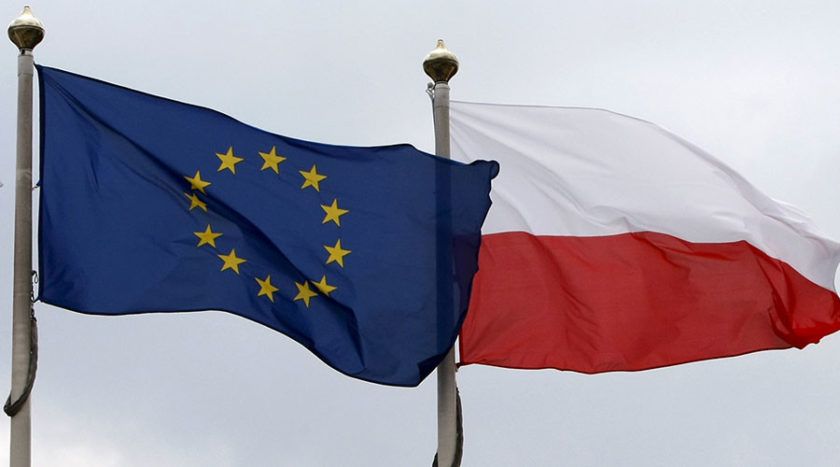EU law precludes the regime in force in Poland which permits the Minister for Justice to second judges to higher criminal courts; secondments which that minister – who is also the Public Prosecutor General – may terminate at any time without stating reasons
The requirement that judges be independent means that the rules relating to such secondments must provide the necessary guarantees in order to prevent any risk of those secondments being used as a means of exerting political control over the content of judicial decisions, including in criminal matters
Seven criminal cases
In connection with seven criminal cases pending before it, the Sąd Okręgowy w Warszawie (Regional Court, Warsaw, Poland) questions whether the composition of the adjudicating panels called upon to rule on those cases is in line with EU law, having regard to the presence in those panels of a judge seconded in accordance with a decision of the Minister for Justice pursuant to the Law on the organisation of the ordinary courts.
According to that court, under the Polish rules relating to the secondment of judges, the Minister for Justice may assign a judge, by way of secondment, to a higher criminal court on the basis of criteria which are not officially known, without the secondment decision being amenable to judicial review. In addition, that minister may terminate that secondment at any time without such termination being subject to criteria that are predefined by law or having to be accompanied by a statement of reasons.
In that context, the referring court decided to question the Court of Justice as to whether the rules referred to above are in line with the second subparagraph of Article 19(1) TEU and as to whether those rules undermine the presumption of innocence applicable to criminal proceedings resulting from, inter alia, Directive 2016/343.
By its judgment, delivered by the Grand Chamber, the Court rules that the second subparagraph of Article 19(1) TEU, read in the light of Article 2 TEU, and Directive 2016/343 4 preclude provisions of national legislation pursuant to which the Minister for Justice of a Member State may, on the basis of criteria which have not been made public, second a judge to a higher criminal court for a fixed or indefinite period and may, at any time, by way of a decision which does not contain a statement of reasons, terminate that secondment, irrespective of whether that secondment is for a fixed or indefinite period.
Findings of the Court
As a preliminary point, the Court finds that the Polish ordinary courts, which include the Regional Court, Warsaw, fall within the Polish judicial system in the ‘fields covered by Union law’, within the meaning of the second subparagraph of Article 19(1) TEU. To guarantee that such courts can ensure the effective legal protection required under that provision, maintaining their independence is essential. Compliance with the requirement of independence means, inter alia, that the rules relating to the secondment of judges must provide the necessary guarantees in order to prevent any risk of that secondment being used as a means of exerting political control over the content of judicial decisions.
In that regard, the Court emphasises that, although the fact that the Minister for Justice may not second judges without their consent constitutes an important procedural safeguard, there are, however, a number of factors which, in the referring court’s view, empower that minister to influence those judges and may give rise to doubts concerning their independence. Analysing those various factors, the Court states, first of all, that, in order to avoid arbitrariness and the risk of manipulation, the decision relating to the secondment of a judge and the decision terminating that secondment must be taken on the basis of criteria known in advance and must contain an appropriate statement of reasons. In addition, as the termination of the secondment of a judge without that judge’s consent may have effects similar to those of a disciplinary penalty, it should be possible for such a measure to be legally challenged in accordance with a procedure which fully safeguards the rights of the defence. Furthermore, noting that the Minister for Justice also occupies the position of Public Prosecutor General, the Court finds that that minister thus has, in any given criminal case, power over both the public prosecutor attached to the ordinary court and the seconded judges, which is such as to give rise to reasonable doubts in the minds of individuals as to the impartiality of those seconded judges. Lastly, the seconded judges in the adjudicating panels called upon to rule in the disputes in the main proceedings are also occupying the positions of deputies of the Disciplinary Officer for Ordinary Court Judges, who is the person responsible for
investigating disciplinary proceedings brought against judges. The combination of those two roles, in a context where the deputies of the Disciplinary Officer for Ordinary Court Judges are also appointed by the Minister for Justice, is such as to give rise to reasonable doubts in the minds of individuals as to the imperviousness of the other members of the adjudicating panels concerned to external factors.
Taken together, those various facts are, subject to the final assessments which are to be carried out by the referring court, such as may lead to the conclusion that the Minister for Justice has, on the basis of criteria which are not known, the power to second judges to higher courts and to terminate their secondment, without being required to give reasons for that decision, with the result that, during the period of those judges’ secondment, they are not provided with the guarantees and the independence which all judges should normally enjoy in a State governed by the rule of law. Such a power cannot be considered compatible with the obligation to comply with the requirement of independence.
Furthermore, as regards the presumption of innocence applicable to criminal proceedings, respect for which is intended to be ensured by Directive 2016/343, it presupposes that the judge is free of any bias and any prejudice when examining the criminal liability of the accused. The independence and impartiality of judges are therefore essential conditions for guaranteeing the presumption of innocence. However, in this instance, it appears that, in the circumstances referred to above, the independence and impartiality of judges and, accordingly, the presumption of innocence may be jeopardised.






Leave a Reply